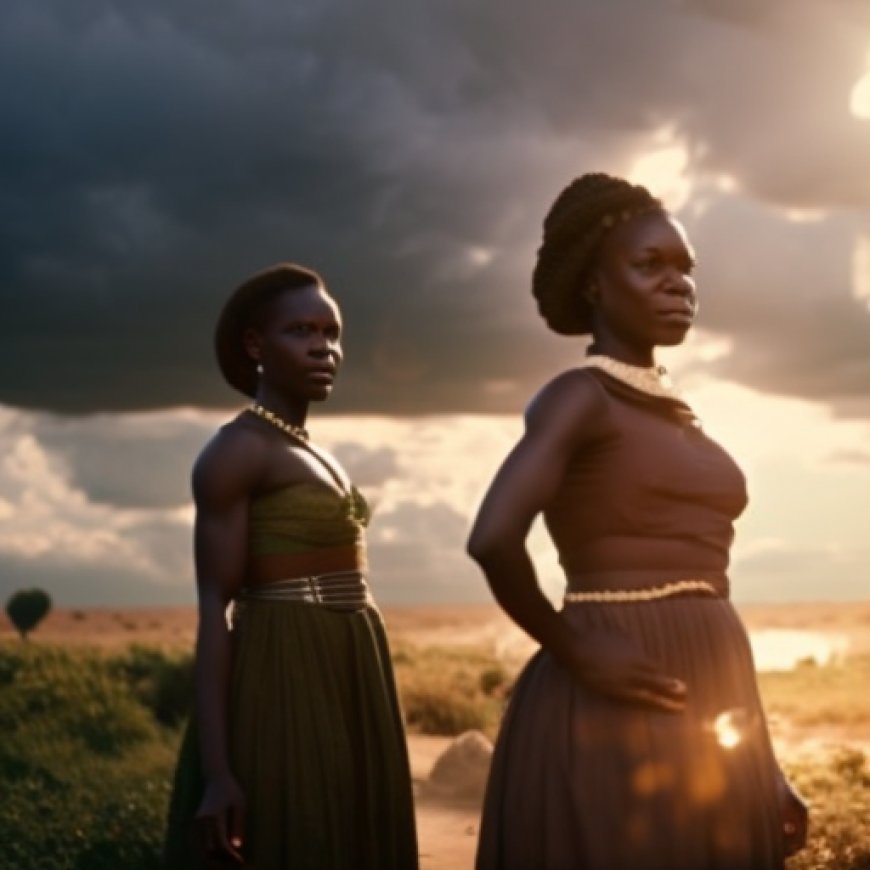Supporting women in Zimbabwe in their quest for equal opportunities
Supporting women in Zimbabwe in their quest for equal opportunities World Bank


Tackling Gender Inequality in Zimbabwe: A Report on Policy Strategies

In order to address the challenges related to gender inequality, a comprehensive set of policy strategies is required. These strategies should focus on promoting girls’ school enrollment and educational attainment, increasing financial inclusion, and enforcing gender quotas within the government. Additionally, gender policies and legal frameworks would benefit from enhanced integration and monitoring of gender targets at various government levels, as well as improved coordination with stakeholders in the private and non-profit sectors.
Emphasizing the Sustainable Development Goals (SDGs)
- Goal 4: Quality Education – Promoting girls’ school enrollment and educational attainment is crucial for achieving SDG 4, which aims to ensure inclusive and equitable quality education for all.
- Goal 5: Gender Equality – Addressing gender inequality is at the core of SDG 5, which seeks to achieve gender equality and empower all women and girls.
- Goal 8: Decent Work and Economic Growth – Increasing financial inclusion and enforcing gender quotas within the government contribute to SDG 8, which aims to promote sustained, inclusive, and sustainable economic growth, full and productive employment, and decent work for all.
- Goal 17: Partnerships for the Goals – Improved coordination with stakeholders in the private and non-profit sectors aligns with SDG 17, which emphasizes the importance of partnerships to achieve the SDGs.
Government Initiatives and Partnerships
The Ministry of Women Affairs, Community, Small and Medium Enterprises Development (MoWACSMED) in Zimbabwe has demonstrated a firm commitment to advancing the gender equality and women’s empowerment agenda. They have recently published the Zimbabwe National Strategy to Prevent and Address Gender-based Violence 2023–2030 and are finalizing the revision of the National Gender Policy. The World Bank has been a close partner in the consultation processes for both strategies.
Importance of Investing in Women
. With gender-based violence still prevalent in Zimbabwe, the government must maintain its unwavering commitment to investing in women.
SDGs, Targets, and Indicators
| SDGs | Targets | Indicators |
|---|---|---|
| SDG 4: Quality Education | Target 4.1: By 2030, ensure that all girls and boys complete free, equitable, and quality primary and secondary education leading to relevant and effective learning outcomes | No specific indicators mentioned in the article |
| SDG 5: Gender Equality | Target 5.1: End all forms of discrimination against all women and girls everywhere | No specific indicators mentioned in the article |
| SDG 5: Gender Equality | Target 5.5: Ensure women’s full and effective participation and equal opportunities for leadership at all levels of decision-making in political, economic, and public life | No specific indicators mentioned in the article |
| SDG 8: Decent Work and Economic Growth | Target 8.10: Strengthen the capacity of domestic financial institutions to encourage and expand access to banking, insurance, and financial services for all | No specific indicators mentioned in the article |
| SDG 16: Peace, Justice, and Strong Institutions | Target 16.7: Ensure responsive, inclusive, participatory, and representative decision-making at all levels | No specific indicators mentioned in the article |
1. Which SDGs are addressed or connected to the issues highlighted in the article?
- SDG 4: Quality Education
- SDG 5: Gender Equality
- SDG 8: Decent Work and Economic Growth
- SDG 16: Peace, Justice, and Strong Institutions
The article discusses the challenges related to gender inequality and the need for comprehensive policy strategies to address them. These strategies include promoting girls’ school enrollment and educational attainment (related to SDG 4), increasing financial inclusion (related to SDG 8), and enforcing gender quotas within the government (related to SDG 16). The article also mentions the importance of gender policies and legal frameworks, which align with SDG 5.
2. What specific targets under those SDGs can be identified based on the article’s content?
- Target 4.1: By 2030, ensure that all girls and boys complete free, equitable, and quality primary and secondary education leading to relevant and effective learning outcomes (under SDG 4)
- Target 5.1: End all forms of discrimination against all women and girls everywhere (under SDG 5)
- Target 5.5: Ensure women’s full and effective participation and equal opportunities for leadership at all levels of decision-making in political, economic, and public life (under SDG 5)
- Target 8.10: Strengthen the capacity of domestic financial institutions to encourage and expand access to banking, insurance, and financial services for all (under SDG 8)
- Target 16.7: Ensure responsive, inclusive, participatory, and representative decision-making at all levels (under SDG 16)
Based on the issues highlighted in the article, the specific targets identified are related to ensuring quality education for all girls and boys (Target 4.1), ending discrimination against women and girls (Target 5.1), promoting women’s participation and equal opportunities in decision-making (Target 5.5), expanding access to financial services (Target 8.10), and promoting inclusive decision-making at all levels (Target 16.7).
3. Are there any indicators mentioned or implied in the article that can be used to measure progress towards the identified targets?
No specific indicators are mentioned or implied in the article that can be used to measure progress towards the identified targets.
The article focuses more on the need for comprehensive policy strategies and commitments rather than providing specific indicators for measuring progress.
Behold! This splendid article springs forth from the wellspring of knowledge, shaped by a wondrous proprietary AI technology that delved into a vast ocean of data, illuminating the path towards the Sustainable Development Goals. Remember that all rights are reserved by SDG Investors LLC, empowering us to champion progress together.
Source: blogs.worldbank.org

Join us, as fellow seekers of change, on a transformative journey at https://sdgtalks.ai/welcome, where you can become a member and actively contribute to shaping a brighter future.







